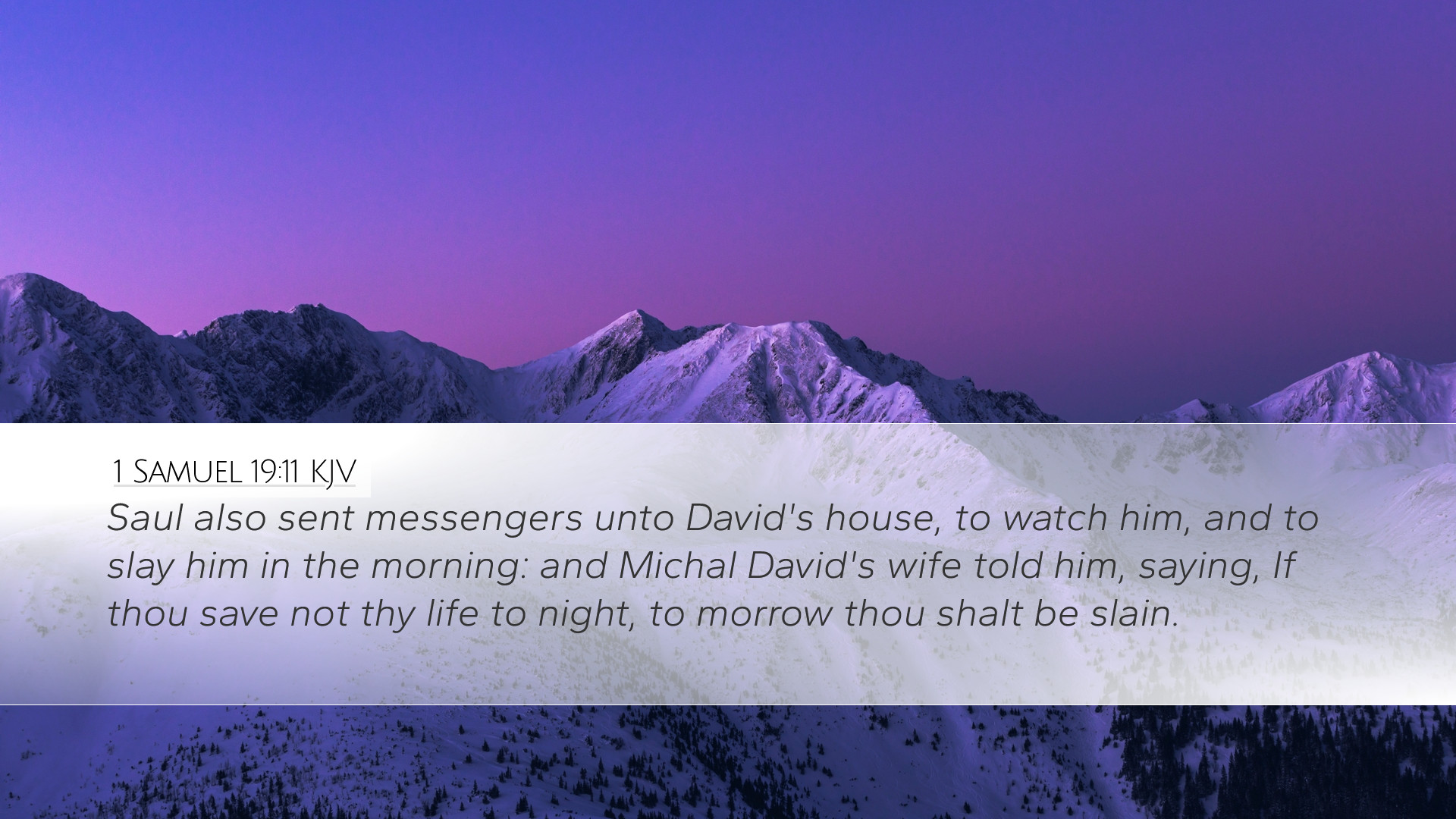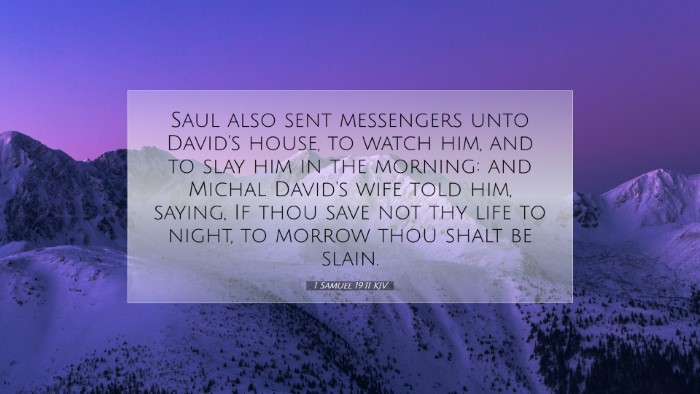Bible Commentary on 1 Samuel 19:11
1 Samuel 19:11 states: "Saul sent messengers to David's house to watch him and to kill him. But Michal, David's wife, told him, 'If you do not escape with your life tonight, tomorrow you will be killed.'" This verse falls within the larger narrative of David's increasing conflict with King Saul, illustrating themes of loyalty, danger, and divine providence.
Contextual Analysis
This passage occurs in a critical moment in the life of David as he transitions from being a favored musician in Saul's court to a target of the king’s murderous intent. The emerging animosity, fueled by jealousy, sets the stage for David's eventual flight and the unfolding of his destiny as the future king of Israel.
Historical Background
Saul's initial favor towards David, following David’s victory over Goliath, rapidly deteriorates as the women's song "Saul has slain his thousands, and David his tens of thousands" (1 Samuel 18:7) ignites Saul’s envy. This jealousy leads him to seek David's life. Understanding the sociopolitical dynamics of ancient Israel helps illuminate the pressures on Saul as he struggles to maintain his kingship amidst a rising leader in David.
Theological Insights
God's Sovereign Protection
Despite Saul's threats, God's protective hand is evident in the actions of Michal, David's wife. Her warning reflects a deep loyalty and love that serves to safeguard David’s life, hinting at God's providential oversight. This reveals a profound truth that God often operates through the actions of individuals.
The Role of Women in Scripture
Michal stands as a significant figure in this narrative. She not only loves David but acts decisively to protect him. Her boldness challenges conventional expectations of women's roles in ancient society, portraying them as critical agents in the unfolding of God’s plan.
Commentary Excerpts
Matthew Henry's Commentary
Matthew Henry emphasizes the peril David faces and underscores Michal's critical intervention. He states, "It is no new thing for those who are in power to persecute those who are better than themselves; and yet God can and will find ways to deliver His people." Henry points to the moral integrity of David, contrasting it with Saul’s deteriorating character.
Albert Barnes' Notes
Barnes highlights the unfolding drama of the human heart in turmoil. He comments, "Michal’s loyalty reflects a deeper truth in the human condition; sometimes, it is those closest to us who possess the greatest insight into our peril." His observation reminds readers of the complexities of relationships amidst conflict and the importance of discernment in times of danger.
Adam Clarke's Commentary
Clarke explores the depth of Michal's character and the faith underpinning her actions. He notes, "Michal's warning not only showcases her love for David, but it also reflects her courage in a patriarchal society where her voice could easily have been silenced." Clarke’s insights encourage readers to appreciate the often-overlooked contributions of women in biblical narratives.
Applications for Today
- Loyalty and Courage: Michal's actions provide a powerful example of loyalty that challenges believers to be courageous in the defense of others, particularly when faced with injustice.
- Divine Sovereignty: This passage reiterates the assurance of God's control over human affairs, reassuming the faith that God’s protective hand is present in times of trial.
- The Significance of Relationships: The dynamics between David and Michal highlight the necessity of supportive relationships within the Christian community, where believers look out for one another's wellbeing.
Conclusion
1 Samuel 19:11 is a rich verse that encapsulates the themes of threat and divine protection, showcasing the complexity of human relationships amid political strife. The insights from public domain commentaries illuminate the significance of individual actions and God’s overarching providence in the narrative of David’s life. As readers reflect on this passage, they are invited to contemplate their own roles in the story of God's redemptive work and the ways in which they might serve as protectors, encouragers, or voices of truth in their communities.


